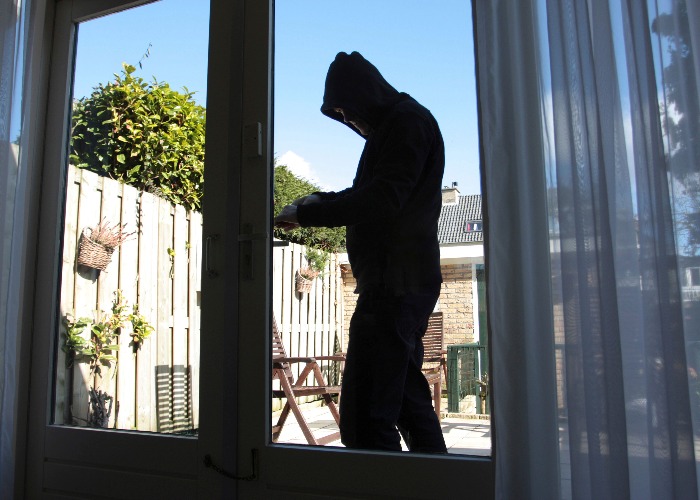Keeping valuables out-of-sight, hiding keys, taking care on social media and other ways to keep your home safe from burglars this Summer

With many of us preparing for our annual holiday, we look at nine ways to avoid break-ins or accidental damage during the next few months.
Heading off for a well-earned break this July or August?
Whether you're enjoying a weekend at the seaside or a month-long escape, an empty house can be a target for opportunistic burglars or leave you vulnerable to accidental damage.
Fortunately, a few low-cost precautions can make a big difference.
In this article, we look at seven of the best approaches.
1. Make your home look “lived-in”
Burglars are more likely to strike if a home looks unoccupied.
Consider using plug-in timer switches to turn lights on and off in the evenings – they cost as little as £6 and are simple to set up.
You may also want to cancel regular deliveries and avoid scheduling online orders to arrive while you’re away.
Parcels left on the doorstep are a telltale sign you’re not around.
2. Keep your car keys hidden
Car keys are a popular target in domestic burglaries – thieves often break in solely to steal them and take the vehicle.
If you’re not driving, keep these hidden in a drawer or take them with you.
A Faraday pouch can block signals if you’re leaving the keys behind.
These are small, signal-blocking bags lined with metal mesh that prevents wireless communication.
They help protect against relay attacks in which thieves pick up and amplify your car key’s signal and start your car remotely.
3. Upgrade your locks and alarms
Your doors and windows should be as secure as possible.
For front and back doors, a five-lever mortice deadlock or a multi-point locking system is ideal.
Ground-floor windows should also have locks.
If you don’t already have one, consider a burglar alarm.
Even a basic model – or a well-placed dummy alarm box – can be enough to deter a would-be thief.
4. Make use of the latest tech
Smart doorbells and Wi-Fi-connected cameras have surged in popularity in recent years, and for good reason.
They can provide footage if anything does happen while you're away.
Choose devices with night vision, wide-angle lenses and cloud storage, if possible.
Also, make sure your home Wi-Fi is password-protected to reduce the risk of hacking.
5. Secure sheds, tools and bikes
Outdoor items are often overlooked but are easy pickings for passing thieves.
Lock ladders, spades and gardening tools away – avoid leaving anything outside that criminals could use to access windows or climb fences.
Secure your shed with a proper padlock and consider a battery-powered shed alarm.
It’s also wise to store bikes and scooters out of sight.
35 home improvements that are a waste of money
6. Share your holiday plans with someone you trust
A sense of community is often the key to maintaining a safe property.
Consider letting a neighbour, family member or friend know you're going away.
Ask if they can pop in occasionally or at least keep an eye on the front of the property. It can help with insurance, too – some policies require someone to check in every few days if a home is unoccupied for an extended period.
7. Be careful with social media
It’s tempting to share holiday snaps in real time, but public posts about your trip could signal to burglars that your property is empty.
Wait until you’re home to post or adjust privacy settings so only a trusted group can see what you’re up to.
Some insurers won’t reject a claim purely based on a social media post, but it’s still a sensible precaution.
Check your insurance cover
Most standard home insurance policies allow your home to be unoccupied for up to 30 days.
However, you should always read the small print.
If you’re going away for longer, you may need to inform your insurer or arrange short-term ‘unoccupied home’ cover.
Have your say
Have you ever been the victim of burglary? Do you have any tips for fellow readers?
We’d love to hear your comments below.
Comments
Be the first to comment
Do you want to comment on this article? You need to be signed in for this feature